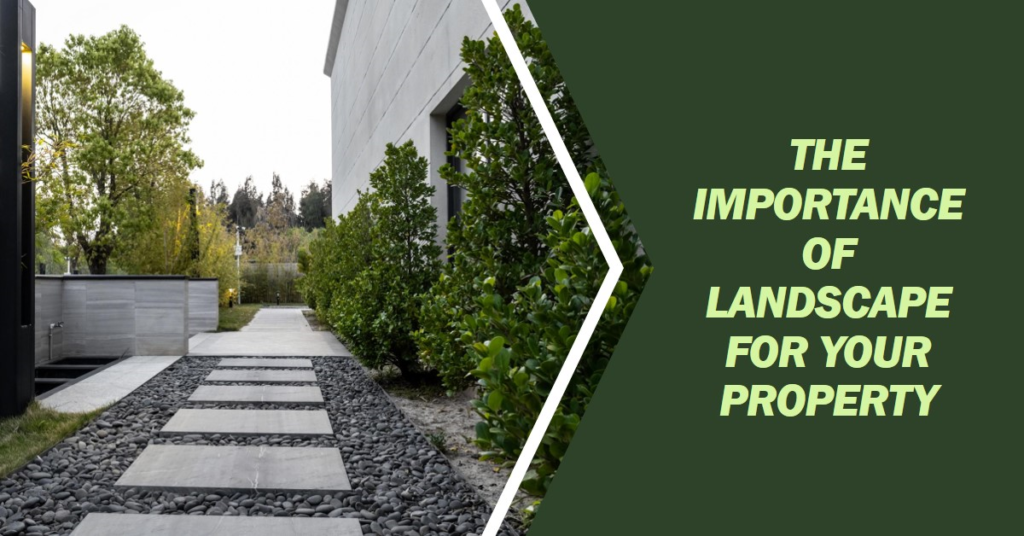
Table of Contents
- Introduction: The Undeniable Importance of Landscaping
- Curb Appeal: The Power of First Impressions
- Environmental Benefits: A Greener Approach
- Financial Advantages: Investing in Landscaping
- Health and Well-being: Nature’s Healing Touch
- Biodiversity: Supporting Local Wildlife
- Functionality: Creating Usable Outdoor Spaces
- Sustainable Practices: Landscaping for the Future
- Community Impact: Enhancing Neighborhood Appeal
- Conclusion: The Holistic Value of Landscaping
Introduction: The Undeniable Importance of Landscaping
Landscaping is not merely an optional enhancement for property owners; it is a critical component that significantly affects the value, functionality, and aesthetics of any property. A well-designed landscape serves as the first impression of your home or business, creating a welcoming atmosphere and reflecting the care and attention given to the property. By understanding the multifaceted benefits of landscaping, property owners can make informed decisions that yield both immediate and long-term rewards.
Curb Appeal: The Power of First Impressions
The first impression of a property often hinges on its exterior appearance. This is where landscaping plays a pivotal role. A beautifully manicured lawn, strategically placed plants, and thoughtfully designed pathways can transform an ordinary property into a visually stunning masterpiece.
Curb appeal is not just about making a property look good; it’s about creating an inviting and harmonious environment that appeals to potential buyers, visitors, or clients. A well-maintained landscape demonstrates a commitment to upkeep and enhances the overall perception of the property, potentially increasing its market value.
Environmental Benefits: A Greener Approach
Landscaping goes beyond aesthetics; it also provides substantial environmental benefits. Strategically planted trees and shrubs can act as natural air filters, removing pollutants and providing cleaner air. Additionally, a well-planned landscape can aid in water conservation through the use of drought-resistant plants and efficient irrigation systems.
Moreover, landscaping can contribute to reducing the urban heat island effect, where built environments become significantly warmer than their rural surroundings. By incorporating green spaces and vegetation, properties can help lower temperatures, reduce energy costs, and create more comfortable outdoor areas.
Financial Advantages: Investing in Landscaping
Investing in landscaping can yield impressive financial returns. A well-landscaped property can significantly increase its market value, often providing a return on investment that rivals, or even exceeds, many home improvement projects. Potential buyers are more likely to be drawn to properties with attractive, well-maintained landscapes, leading to quicker sales and potentially higher offers.
Furthermore, landscaping can contribute to long-term savings. Properly placed trees and shrubs can reduce heating and cooling costs by providing shade in the summer and acting as windbreaks in the winter. These natural solutions can enhance the energy efficiency of a property, reducing reliance on artificial heating and cooling systems.


Health and Well-being: Nature’s Healing Touch
The psychological and physical benefits of spending time in a well-designed landscape are well-documented. Green spaces provide a sense of tranquility and relaxation, helping to reduce stress and promote mental well-being. Exposure to nature has been linked to lower levels of anxiety and depression, making landscaped areas an essential component of a healthy lifestyle.
Moreover, landscaped areas encourage physical activity. Walking paths, gardens, and outdoor recreational spaces invite residents and visitors to engage in regular exercise, promoting overall health and well-being. This can be particularly beneficial in urban areas, where access to natural spaces may be limited.
Biodiversity: Supporting Local Wildlife
A thoughtfully designed landscape can become a haven for local wildlife. By incorporating a variety of plants, trees, and shrubs, property owners can create habitats that support birds, insects, and other wildlife. Native plants, in particular, play a crucial role in maintaining local biodiversity, providing food and shelter for species that are adapted to the region’s climate and conditions.
Promoting biodiversity through landscaping not only benefits wildlife but also enhances the ecological balance of the area. Pollinators such as bees and butterflies are essential for the reproduction of many plants, and a diverse landscape can support these important species, contributing to the health of the broader environment.
Functionality: Creating Usable Outdoor Spaces
Landscaping is not just about beauty; it’s also about creating functional outdoor spaces that enhance the usability of a property. Well-designed landscapes can include features such as patios, decks, and outdoor kitchens, extending the living space and providing areas for relaxation, entertainment, and social gatherings.
In addition to recreational areas, functional landscaping can address practical needs such as drainage solutions, privacy screening, and noise reduction. By addressing these issues through thoughtful design, property owners can enhance the overall functionality and enjoyment of their outdoor spaces.
Sustainable Practices: Landscaping for the Future
Sustainability is a key consideration in modern landscaping. Sustainable landscaping practices involve using resources efficiently, reducing waste, and minimizing the environmental impact of landscape maintenance. Techniques such as composting, rainwater harvesting, and using organic fertilizers contribute to a healthier and more sustainable environment.
Incorporating native and drought-tolerant plants reduces the need for excessive watering and chemical inputs, promoting a more resilient landscape. By adopting sustainable practices, property owners can create landscapes that are not only beautiful and functional but also environmentally responsible.
Community Impact: Enhancing Neighborhood Appeal
A well-landscaped property can have a positive impact on the surrounding community. Attractive landscapes contribute to the overall aesthetic appeal of a neighborhood, encouraging other property owners to invest in their own landscapes and creating a ripple effect of beautification and improvement.
Communal green spaces, parks, and gardens foster a sense of community and provide shared areas for social interaction and recreational activities. These spaces enhance the quality of life for residents and contribute to a stronger, more cohesive community.
Conclusion: The Holistic Value of Landscaping
In conclusion, the importance of landscaping extends far beyond mere aesthetics. It encompasses environmental, financial, health, and social benefits that collectively enhance the value and enjoyment of a property. By investing in thoughtful and sustainable landscape design, property owners can create spaces that are not only beautiful but also functional, environmentally responsible, and beneficial to the broader community. Whether for residential or commercial properties, the advantages of landscaping are clear, making it a vital consideration for anyone looking to enhance their property.



